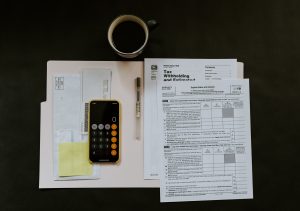What is a budget?
Making a budget is a crucial first step in taking control of one’s financial situation. However, the term “budget” may cause confusion or a sense of confinement. In addition, there are several approaches to budgeting, but ultimately, all of them involve setting financial goals and keeping tabs on your spending. A budget shouldn’t limit your options; it should open up more possibilities.
For those who don’t know, let me explain.
A budget is a plan that helps you manage your money over a specific time frame by anticipating your income and expenses. For instance, when planning out one’s monthly budget, one must think about how one’s money will be spent and earned throughout that month.
“The word ‘budget’ usually connotes something awful or unpleasant. Accordingly, the word “spending plan” is commonly used. Ryan Fleming, Principal of Armstrong, Fleming & Moore, Inc. and Certified Financial Planner® and Accredited Investment Fiduciary®, says, “Knowing your income and understanding the inflows and outflows of your money is the key.” So for us, it’s trying to give our clients a sense of what they can spend on their necessities, ambitions, hopes, or objectives, and figuring out whether they can do a little more with what they have.

Creating a budget might help you gain much-needed perspective on your monthly income and expenditures. There are essentially three phases to the budgeting procedure.
Formulating a spending plan with after-tax income and actual costs
To evaluate where you stand financially, it’s important to keep track of your income and expenditures and make adjustments as needed.
It is recommended that you create a budget in order to effectively manage your personal finances.
Budgeting Strategies: 5 Ways to Get Started
Methods of limiting spending are diverse. Some individuals might benefit more from particular strategies. In budgeting, the ideal budget is usually the one you can stick to without sacrificing essentials. The following are five budgeting methods to consider.
50/30/20 Budgeting 1.
The 50/30/20 budget is a method of financial planning in which you allocate 50% of your income toward meeting essential expenses, 30% toward satisfying wants, and 10% toward paying off debt. Senator Elizabeth Warren and her daughter, Amelia Warren Tyagi, adopted the concept in their book All Your Worth: The Ultimate Lifetime Money Plan.

You can use the 50/30/20 budget split to allocate the following percentages of your income to the following areas:
50% is devoted to necessities (housing, food, transportation, insurance, minimum debt commitments, etc.). Include all essentials (rent/mortgage/utility payments, groceries, gas, insurance, minimum debt payments, etc.).
30% on desires (Netflix, movie tickets, classes, concerts, vacations, etc) (Streaming services, admission to the movies, courses, concerts, trips, etc.)
Twenty percent for financial stability and debt (emergency fund, retirement investing, additional monthly debt payments, and so on).(rainy-day fund, retirement savings, extra payments toward debt each month, etc.).

If you’re looking to get a handle on your spending, this budget may be the starting point you’ve been looking for. However, its efficacy may vary depending on the individual.
Fleming recommends this budgeting approach for those looking to start over, whether they are just getting their feet wet with budgeting as a young adult or are ending a long-term relationship and preparing to face the financial world alone for the first time. This checklist may serve as a starting point for establishing reasonable financial habits.
Those who are fortunate enough to not have to spend more than half their income on housing should reconsider this budgeting technique. In addition, this is not ideal for those who wish to make rapid progress in paying off their debt.
Subtractive budgeting, or “zero-based budgeting,”
The term “zero-based budgeting” refers to the practice of allocating all available resources toward necessary expenses and desired outcomes such as saving and paying off debt. After taking all of your expenses out of all of your income, you can get to “zero” if you put all of your income into different “buckets,” hence the name.

The aim of this budget plan is to balance your income and expenditures. David Blaylock, CFP®, head of advice at Boston-based Origin, an employee financial-wellness platform, suggests treating savings contributions like any other expense, such as rent or a phone bill. “Those who keep careful tabs on their expenditures and whose income is reasonably predictable may find this method effective.”
For this reason, a single person without any dependents whose monthly income is $4,000 should spend no more than that amount each month after deducting any necessary contributions to savings and paying off any necessary loans. This is what a rough budget may look like:
- Rent: $1,300
- Food: $300
- Services: $100
- $400 to pay for travel costs, such as gas, insurance, maintenance, public transportation, and ridesharing.
- Amusement cost: $200.
- Cost of insurance (car, health, renter’s, etc.): $300
- $300 down payment on a car
- A The $300 payment on student loans
- Set aside $800 for old age (20%).
- Expenses will, of course, differ from place to place, with some places having far higher living costs than others. Your outlays will change according to your employment, marital status, whether or not you have children, whether or not you help support your parents financially, and a host of other factors.
This method of financial planning accounts for and allocates all of your income. This is a sample budget that you might use if you’ve ever wondered where your money goes.
Third, prioritizing your own well-being is essential.
If you have a hard time saving for the future, it’s easy to feel like there’s nothing left over after paying your bills. “Paying yourself first” can be helpful in certain situations.
To practice “paying yourself first,” you should allocate a certain amount or percentage of your monthly income to savings and investing. By developing the practice of saving and investing, you may rest assured that you are planning for the future. Potentially, more independence could result from prioritizing your own payments before those of others, such as rent or utilities.
If you’re saving regularly and putting money away for the future, for instance, you might not need to keep as careful of tabs. Paula Pant, founder of Afford Anything, often uses the term “anti-budget” to refer to the practice of prioritizing one’s own financial well-being over other costs in order to pay off debt and amass funds.
The Envelope System, Number Four
Dave Ramsey’s envelope system is a sort of budgeting strategy that emphasizes saving money and using that money to pay off debt. For your diverse budgetary needs, you use separate envelopes. The contents of each envelope are used exclusively for their designated purpose. If the funds are depleted, then no more expenditures should be made within that budgetary allocation.

Budgeting is a method that requires additional forethought and is designed to prevent wasteful spending and hasten the elimination of debt. You should buy envelopes and label them with the appropriate names and amounts.
It’s easy to rack up credit card debt without meaning to, but this method of spending control can help you avoid that trap. However, it is not without its flaws. It can be challenging to manage, especially in our increasingly cashless economy, but it’s worth considering for people who have had trouble budgeting in the past, says Blaylock.
Cash is not only vulnerable to theft and loss, but it also has no impact on a person’s credit score.
A value-driven approach to budgeting
In today’s world, it’s important for everyone to feel good about the impact of their financial contributions. However, it’s easy to let your spending habits run on autopilot and wind up funding luxuries you could do without. This discontent can be solved by making a budget that fits with one’s core values.
Finding your spending habits and aligning them with your values is more important than worrying about certain percentages and procedures. You may place a high value on experiences, such as going out to dine, trying different restaurants, donating to worthy causes, or taking dance classes.
With this plan, you may avoid frivolous purchases and instead save up for the things that truly matter to you. This demands more attention and intention than the mindless habit of getting coffee every day or making random online purchases.

It’s a good idea to begin by making a list of your priorities. Then, allocate a certain sum to each category to ensure your resources back up your values. Using this method of budgeting could bring greater enjoyment and clarity, as well as help reduce wasteful expenditure.
Common budgeting mistakes Just as there are a variety of budgeting approaches to take, there are also a variety of budgeting mistakes that can be made. It’s important to change your budget often, and especially after big changes in your life, like getting married, having a baby, getting divorced, moving, or losing your job.
UMB Bank senior vice president and senior regional delivery manager Kristine Batch says that “judging how much money they are spending and not preparing for unanticipated demands” are two of the most common budgeting blunders consumers make. making budgets that are too restricted or don’t take into account their way of living, both of which are unrealistic.
It is helpful to look back at your spending habits over the preceding few months as part of the budgeting process. You may use this information to make more informed decisions about your budget and better reflect your current circumstances rather than make assumptions.
In addition, there are the following budgeting mistakes:
poor financial planning, in which costs are not anticipated.
It might be less of a hassle to budget for the set payments if they were the same amount every month. However, you might not be able to adequately plan for expenses that change from month to month. You could also be underestimating your personal spending. If you plan on eating out more than once a week, you can forget about spending $50 per month on food.
Mistakenly assuming that your expenses have been covered How can you be sure you are sticking to your budget if you don’t keep track of your spending? Check your progress to make sure you’re on the right track.
It appears that your budget is not being kept up to date.
The budget you set and stick to should be fluid and subject to continuous revision. There are times in life when it’s necessary to revise your budget, such as when you experience major life changes like losing your job or getting divorced, or when you find that you’re routinely either spending too much or too little money.
I didn’t make a budget because my income was too unstable. If you work as a contractor, freelancer, or on commission, your pay varies from month to month. Though this can make budgeting more challenging, it is still achievable. The 50/30/20 budget could work well for you because it provides a percentage-based framework independent of your income level.
The diversion of resources to other uses If you’ve reached your spending limit in one area, you may always use that as an excuse to dip into other funds. If, for instance, you allotted $200 for eating out but have already spent that amount, you might be able to “find” additional funds elsewhere. Debt avoidance is not inherently negative, but it can complicate budgeting. Spending plans should include sufficient funds to cover the aforementioned areas.
When you’ve never done it before, the thought of creating a budget can seem daunting. These various methods of financial planning can be tried out until you find one that fits your preferences and way of life the best. The best option is the one you’ll actually use frequently. Always make sure to adjust your budget as needed and keep tabs on your progress.
Maintaining a budget takes time and effort. Especially at the outset of the budgeting process, “evaluating progress on a daily or weekly basis is vital,” says Blaylock. If necessary, this will allow consumers time to adjust their spending habits before the month ends.
You Need a Budget, Mint, and Personal Capital are all examples of budgeting applications and software that you might explore (YNAB). While it’s only one aspect of personal finance, budgeting can help you get on track with debt repayment, savings, and investment, and more broadly with reaching your goals in life.
